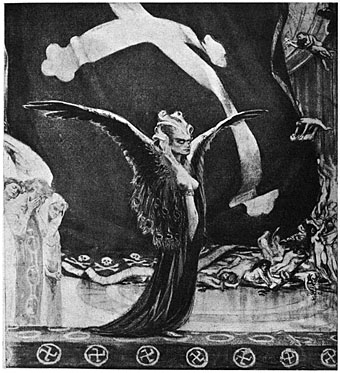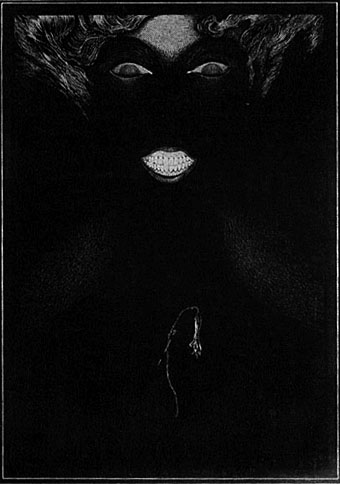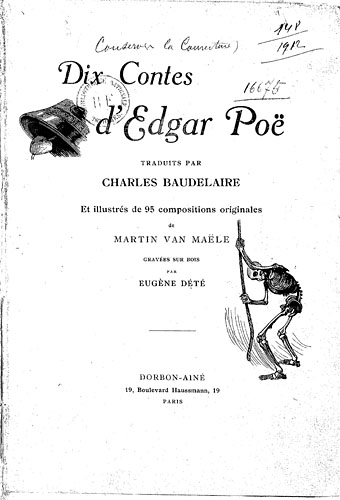
I’ve waited months to write about this book in the run-up to Halloween. Several years ago I wrote a series of pre-Halloween posts about the illustrators of Edgar Allan Poe, with the final entry containing a lone illustration for The Tell-Tale Heart by Martin van Maële (1863–1926). At the time van Maële’s book was unavailable online so I was left to wonder what the rest of his illustrations might be like. Dix contes d’Edgar Poe (1912) is the volume in question, a collection of moody full-page illustrations plus many small vignettes, all of them engraved on wood by Eugène Dété.
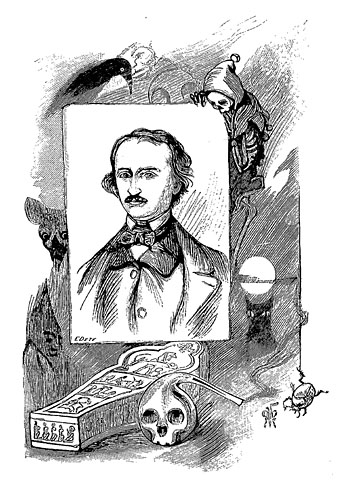
I’d been familiar with several other pieces from this book for many years without knowing their origin thanks to their appearance in the 1986 Penguin Encyclopedia of Horror and the Supernatural, an excellent guide edited by Jack Sullivan with a minor deficiency in that many of the illustrations are uncredited. (They did credit van Maële for two of his pictures but spelled his name as “van Moële” which doesn’t help.) The startling picture of a skeleton pushing a shrouded woman back into her tomb—which I now know is van Maële’s portrait of Madeline Usher—was one of the uncredited drawings, as was the vignette of another skeleton holding a heart like a ticking pendulum (The Tell-Tale Heart again). There are many more skeletons in this book. Van Maële’s illustrations oscillate between two pictorial extremes, from shadow-filled realism in the full-page drawings to Doré-like spot illustrations that suit Poe’s fatalism and macabre sense of humour. It’s a shame that many of these reproductions are darker than they should be, being from the old series of Gallica scans which remove all the grey tones from the images, but at least we can see the book as a whole. My thanks again to Mr TjZ for alerting me to this!
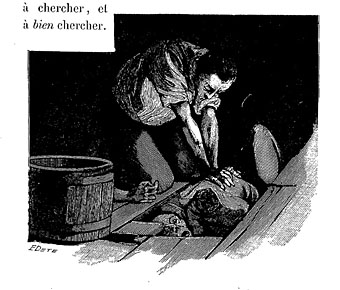
The Tell-Tale Heart.
Van Maële might be better known today if more of the books he illustrated had been suitable for a general audience. In a reversal of the usual state of affairs most of his illustrated editions are the classic works of erotic literature by Apuleius, Choderlos de Laclos, Anatole France et al, plus obscure works devoted to le vice Anglais, while his non-erotic titles by Poe and Conan Doyle are in the minority. If he had a flair for the erotic then he also had a flair for the macabre. Some of his erotic drawings manage to combine the two, notably in La Grande Danse Macabre des Vifs (1905), a portfolio which approaches Félicien Rops by bringing to erotic art a quality of imagination that would usually be rejected for distracting from the primary purpose of pornographic imagery. Wikipedia has this and many more of van Maële’s erotic illustrations.
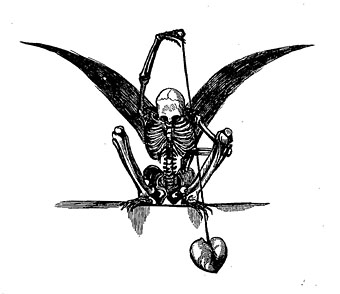
The Tell-Tale Heart.
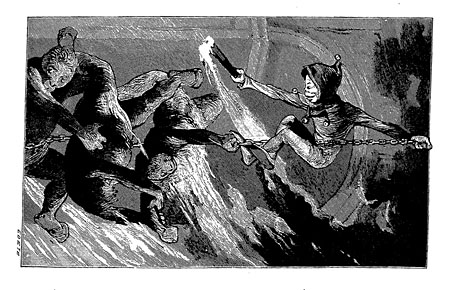
Hop-Frog.
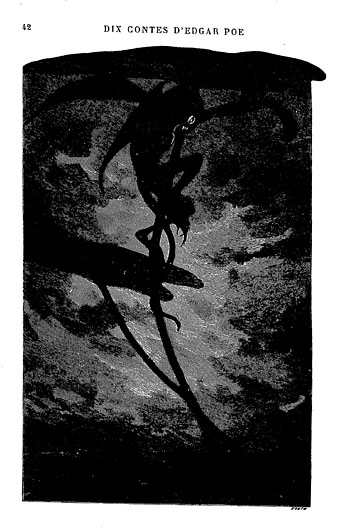
Silence.

